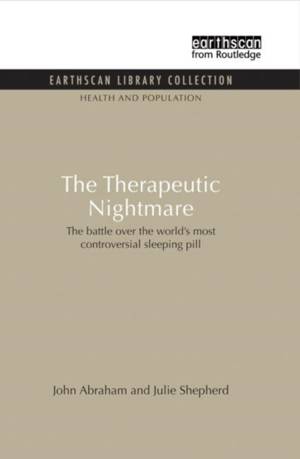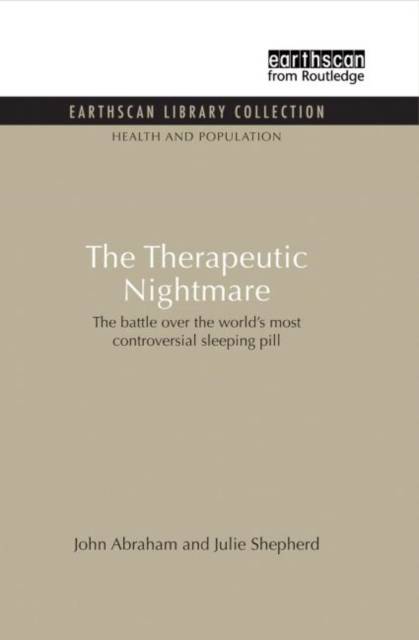
- Afhalen na 1 uur in een winkel met voorraad
- Gratis thuislevering in België vanaf € 30
- Ruim aanbod met 7 miljoen producten
- Afhalen na 1 uur in een winkel met voorraad
- Gratis thuislevering in België vanaf € 30
- Ruim aanbod met 7 miljoen producten
Zoeken
The Therapeutic Nightmare
The battle over the world's most controversial sleeping pill
John Abraham, Julie Sheppard
€ 51,95
+ 103 punten
Omschrijving
How do drugs get to the market? What controls are there and what procedures for monitoring their effects? And how adequate are the regulators in protecting public health when new drugs have serious side effects? The Therapeutic Nightmare tells the story of the sleeping pill Halcion - a story which is far from over. First marketed in the 1970s, Halcion has been taken by millions of patients around the world. For many years it has been associated with serious adverse effects such as amnesia, hallucinations, aggression and, in extreme cases, homicide. Thirteen years after its first release, it was banned by the British government. It remains on sale in the United States and many other countries. This book explains why patients have come to be exposed to Halcion's risks and examines the corporate interests of the manufacturers, the professional interests of the scientists and medical researchers and the interests of patients in safe and effective medication. It reveals how these contending forces shape the regulatory decision-making process about drug safety. As the number of new drugs and health products grows, a major challenge facing regulators and the medical profession is how to put the interests of public health decisively and consistently above the commercial interests of the drugs industry, while becoming more accountable to patient and consumer organizations.
Specificaties
Betrokkenen
- Auteur(s):
- Uitgeverij:
Inhoud
- Aantal bladzijden:
- 196
- Taal:
- Engels
- Reeks:
Eigenschappen
- Productcode (EAN):
- 9781853836503
- Verschijningsdatum:
- 1/10/2009
- Uitvoering:
- Paperback
- Formaat:
- Trade paperback (VS)
- Afmetingen:
- 154 mm x 234 mm
- Gewicht:
- 317 g

Alleen bij Standaard Boekhandel
+ 103 punten op je klantenkaart van Standaard Boekhandel
Beoordelingen
We publiceren alleen reviews die voldoen aan de voorwaarden voor reviews. Bekijk onze voorwaarden voor reviews.








